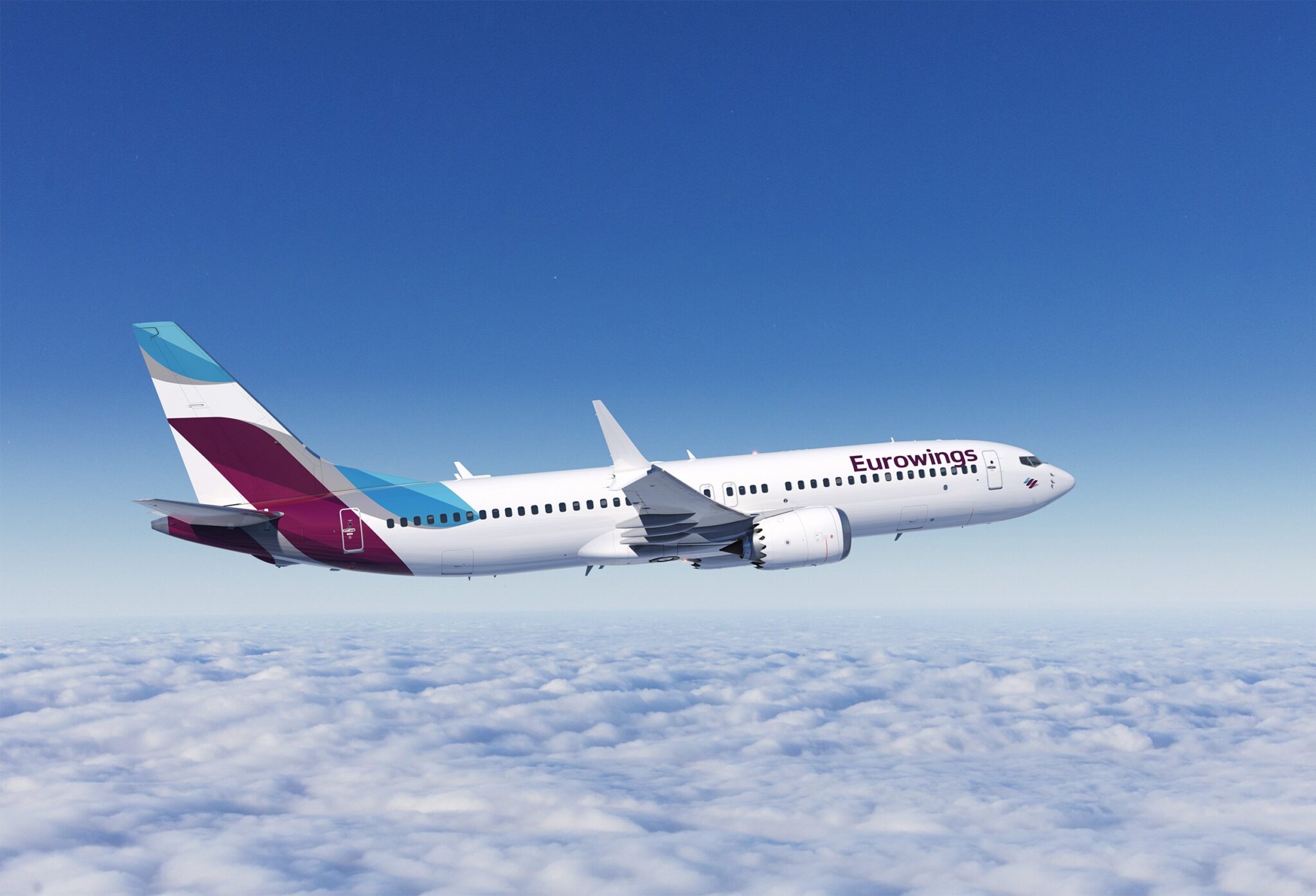Startups Stories Series: The Pivot to B2B Is Not the Promised Land

Skift Take
Angels and venture capital firms considering investments in travel startups salivate at the prospect of a winning consumer startup because historically that's where the vast majority of the enterprise value has been created.
In our Skift Startup Stories series, we document travel startup issues, solutions, and lessons from a variety of angles, hoping to shed light on what separates the winners from the losers.
You can read all of the stories in the series here.
In travel, notable exceptions in the form of success stories on the business to business, or enterprise, side of the ledger include flight-pricing engine ITA Software, which Google acquired for $700 million in 2011, and hospitality-software firm Micros Systems, which Oracle bought for $5.3 billion in 2014.
But these are the exceptions. In light of the torrent of consumer-startup failures in travel, many newbie companies pivot to a business to business focus out of desperation and with the thought that this can't be as difficult as the consumer side. Search-engine marketing to build a consumer audience and stand out from the competition is prohibitively expensive in travel, and now that Google regularly populates the entire top half of its search results' pages with sponsored links or Google's own flight, hotel and Google+ products, search engine optimization becomes very complex, takes a considerable commitment in personnel, and can often be relatively futile.
So why not pivot to the enterprise side of the business and sell services to hotels, corporations, travel management companies and airlines, for example? Tweak the product, revamp the leadership team and you are on the way.
Well, it isn't that easy.
There is absolutely nothing wrong with travel startups pivoting. In fact, there is something amiss when a startup hasn't change direction or focus. When startups' trajectories are a stubborn, straight line, often they haven't been willing to learn anything or are wedded in their emotional and irrational enthusiasm to a particular business theme.
Investor Erik Blachford Urges Caution and Careful Consideration
Erik Blachford, an avid angel investor, advisor and venture partner at Technology Crossover Ventures who previously was executive chairman of Couchsurfing and CEO of Expedia, says many travel startups that have faced immense marketing challenges as a consumer business pivot to the enterprise side of the market and run smack into another huge obstacle -- the sales cycle.
"Not to be a pessimist but I think a bunch of these B2B ideas are going to run into a similar issue," Blackford says. "It will just be a sales roadblock rather than marketing. When startups tell me they are setting up a way for hotels to sign themselves up for XYZ service, or self-service, I just think oh boy, here we go again."
Sales cycles for corporations and hotels, both of which get bombarded with pitches, can be a couple of years long and often these big companies won't bother talking to travel startups unless they are among the top three companies in their category and have a several-year track record.
"Sometimes I just scratch my head," Blachford says. "Why do you think you can sell to 25,000 hotels and build a big salesforce in at least two or three geographies?"
There are tons of travel startups pivoting from a consumer focus to a primarily an enterprise tack, including Yapta, Getaroom, Routehappy, Traxo, Peek, Groupize, GetGoing, TripLingo and many others. The models can be different and often travel startups selling to large enterprises also have a smaller consumer business, as well.
Skift contacted the CEOs of Yapta, Routehappy, Traxo, Groupize and Rome2Rio about their companies' journeys from one side of the consumer versus enterprise dynamic to the other, and the issues that travel startups should consider when crossing this great divide.
Yapta CEO Says Enterprise Products Can't 'Just Sort of Work'
Founded in 2007 as a way for consumers to get rebates from airlines when airfares fall in the days or weeks after the booking, Seattle-based Yapta announced in 2011 that it would explore shifting its focus toward becoming a B2B-oriented company.
Yapta brought in James Filsinger, who formerly headed EZYield, as CEO in July 2012 and today Yapta boasts of selling its flight and hotel price-assurance services directly to clients such as Gap, Macy's, Shell, Dell, Merck and GE, as well as entering into reseller agreements with a dozen or so of the globe's 20 largest travel management companies.
Yapta's initial CEO was more consumer-focused and not a good fit for the enterprise arena, Filsinger says.
The challenge for consumer startups mulling a transition toward the enterprise space is whether "the founder or CEO leadership, which once was really focused on the consumer, do they have the capability, desire or interest to pursue the B2B model," Filsinger says. "It is very different."
A product or service that might have been cool for consumers might not work for corporations, he says. Referring to Yapta's foray into the enterprise arena with its FareIQ product for flight savings, Filsinger says "because of the robust nature of the product it had to work. It couldn't just sort of work."
The sales cycle can be a prolonged and difficult when pitching partnerships to corporations, Filsinger recalls, and travel startups may not survive the wait.
Yapta took three to six months to execute on a proof of concept for FareIQ, Filsinger recalls. "The first year in the B2B market is really a market-building year," he says, adding that it might entail offering free pilot programs without any money coming in to get people to believe in you.
It's all about building trust and relationships and hiring a significant number of salespeople who already have key contacts that will return an email or phone call. "Businesses don't buy solutions from businesses," Filsinger says. "People buy solutions from people. The language you speak to sell to consumers is different than the language you need to sell to corporations."
Yapta currently employs some 20 people, including four salespeople. The company sells flight and hotel price-assurance solutions but about 90 percent of its revenue, which Filsinger says is expected to grow 350 percent year over year in 2015, comes from the air side.
Yapta's competitors include travel management companies themselves, which Filsinger notes have long claimed to have their own airfare-assurance solutions, and TripBam on the hotel side.
Marketing a travel business focused on selling to enterprises is vastly different than promoting a consumer business, Filsinger says, and it can be expensive. For example, Yapta regularly sends four to six people to trade shows, such as those run by the Global Business Travel Association, the Association of Corporate Travel Executives and Concur, and tries to secure speaking slots at these events.
In sum, if a travel startup is having trouble making it as a consumer business and believes "switching to B2B will save the day, take a look at your product and make sure it works," Filsinger says.
Groupize CEO Says Too Few 'Unicorns' For White Labels
Beverly, Massachusetts-headquartered Groupize, which today offers group-booking solutions for hotels, meeting planners and travel management companies, initially built its technology in 2010 and 2011 with the view toward building a consumer business by generating demand through white-label agreements with online travel agencies.
"There are not many unicorns out there," says Groupize founder and CEO Charles de Gaspe Beaubien, referring to the Expedias or Yahoos of the world, or large companies that have the numbers to make a white-label deal successful.
de Gaspe Beaubien says he soon realized the company would have to onboard hotel chains and take on an enterprise focus in doing so but that can be a very lengthy and difficult process.
de Gaspe Beaubien says someone from one of the large hotel chains told him not too long ago that "now that you've been around three or four years we will talk to you."
"Chains are hard to talk to in North America," says de Gaspe Beaubien, adding that the sales cycle can take two to three years.
Hotel chains and independents are bombarded with business pitches, de Gaspe Beaubien says. "One of my advisors told if you are not if you are not on a hotel's top 3 list [for a particular category] it will be a tough way to go," he says.
Or as Rod Cuthbert, the founder and CEO of multimodal transportation site Rome2Rio, puts it about selling to enterprises: "Unless the offering is incredibly compelling, it's always going to be a challenge to get existing players to shift their focus away from their own issues and onto the possibility that the integration of an untried offering from a company that may not be in business next year is a good idea. The high attrition rate of travel startups certainly works against new entrants."
Groupize debuted in 2011 with angel funding from former TripIt president and co-founder Gregg Brockway and others, and de Gaspe Beaubien said he put his own money into the venture, as well. "It took about three months to get my first customer and we had $250 in the bank account for three months," he recalls.
But Groupize hung in there because its angel investors believed in the need to work toward solving the complexity of online or automated group bookings and Groupize notched Series A funding rounds of $4 million, led by Golden Seeds and LaunchPad Venture Group, by summer 2014 when it started to get some traction.
Groupize shifted its efforts toward partnerships with independent hotels and de Gaspe Beaubien cautions that startups really have to have a product or solution that the independents need and are willing to pay for and opposed to a product that might be nice to add.
With 10 employees, Groupize counts some 50 hotel chains and independents as clients and recently began targeting travel management companies, which can have sales processes that last two to three months instead of a couple of years for hotel chains.
Like chains and many independent hotels, travel management companies can be inundated with sales pitches from travel startups and others, de Gaspe Beaubien says.
It helps to hire salespeople with travel industry experience "otherwise it is like stripes and polkadots. You have to be one of them and know their pain points for a product they want," de Gaspe Beaubien says.
But signing the deal is just the beginning because the partnership with a hotel or travel management company won't mean much unless there is adoption, he says. "Then you have to work on the adoption and be involved in the training," de Gaspe Beaubien says. "The sale isn't over when you sign the deal."
de Gaspe Beaubien is optimistic about the company's push to sign on travel management companies, where he argues group-booking solutions are must-have rather than nice-to have. The move into the travel management company arena is just in its initial phase, he adds.
Rome2Rio CEO Says Initial Assumptions Happily Proved Wrong
Rome2Rio, which is a metasearch site offering travelers and locals door-to-door transportation choices from buses and ferries to rail and flights, is the relatively rare travel startup that pivoted from a business-to-business orientation to a consumer travel site. Rome2Rio counted 8.6 million visitors on desktop in August 2015, according to SimilarWeb.
"When we launched in 2012, we worried it would be difficult to attract direct consumer traffic -- SEO (organic Search Engine Optimization) is hard and takes time, and SEM (paid Search Engine Marketing) is particularly expensive in the travel space -- so we developed white Label and API (Application Programming Interface) programs as part of a B2B strategy we thought would be interesting to existing travel players," says Rome2Rio CEO Rod Cuthbert.
"It turned out that both those assumptions were wrong," Cuthbert says.
Rome2Rio turned to its "Plan B" option, a consumer business, when Google figured out that Rome2Rio's content provided valuable answers to the question, "How do I get from A to B?" Cuthbert says. The startup began "an aggressive indexing program" that now includes 70 million pages, he says.
The usual suspects, namely household-name travel sites, weren't exactly knocking at Rome2Rio's doors, pleading to enter into partnerships.
"At the same time, we learned that the existing travel players didn't really understand how they could integrate our offering into their existing sites or apps," Cuthbert says. "That meant that besides a handful of partners, we were unlikely to gain much traction on the B2B front. As a result we have scaled back our B2B program and see it as secondary to our core B2C business."
Cuthbert acknowledges that Rome2Rio's journey from a business-to-business orientation and back toward wooing consumers isn't a typical travel-startup path. What Rome2Rio has going for it is that it is trying to solve a real-world problem, although it still faces a very tough grind because of the complexity of accessing such disparate and fragmented global transportation options, and then presenting them in an experience that can satisfy users.
"I don't think this is a typical story in online travel," Cuthbert says, referring to Rome2Rio's pivot toward a consumer business. "What I see more often is that companies launch on a wave of often-misplaced enthusiasm about their business-to-consumer prospects; quickly learn that it's very difficult to attract consumer attention in any significant volume, and then pivot out of absolute necessity towards a B2B model."
Traxo CEO on Finding A Niche in the Middle
Dallas-based Traxo started out in 2008 as purely a consumer play, sending alerts to travelers when people in their social networks were nearby on trips. Over time, says founder and CEO Andres Fabris, he realized that this proximity-alert technology could be an itinerary-management solution, and Traxo subsequently became a third-mover after TripIt and WorldMate in helping travelers organize their hotel, airline and car rental bookings, and track loyalty programs.
The first five years of Traxo's existence was as a direct-to consumer business, Fabris says, and the past two years have been mostly about developing a "business-to-business dimension," selling itinerary management and loyalty solutions to corporations, expense-reporting apps, global distribution systems and travel agencies.
But it gets even more complicated than that and points to an issue that emerged frequently in our discussions with CEOs of transitioning startups: Is B2B2C i.e. offering a product for consumers on a white-label basis to a larger online travel agency or airline, for example, actually a third model, sort of half way between consumer startups and those targeting enterprises?
One veteran travel industry investor says: "B2B2C is just a distribution strategy for a consumer business, and it is not another category. There are only two categories -- consumer or enterprise."
Does the distinction really matter? Would a startup lose its focus if it has its feet in both camps or doesn't understand the difference?
"I think that's a semantic thing," says Blachford of Technology Crossover Ventures. "To me 'distribution' is everything from a permanent link/ad placement, B2C, to my running your travel business for you on a private-label basis, or B2B. All that gray area in the middle is arguably B2B2C."
Fabris' Traxo is seeing most of its growth in the B2B2C arena, albeit earning less than in pure enterprise sales, but gaining higher volumes.
Fabris says Traxo's main focus is business to business but in some cases clients want to put the tool in front of consumers as in B2B2C.
"It's B2B as an infrastructure play or B2B2C as a platform that gets to end users and necessitates good design and being intuitive," Fabris says.
With 22 employees, Fabris believes its salespeople have to be "fluent in the language of travel" such as booking PNRs (Personal Name Records), qualtity assurance and policy compliance.
"Traxo sells to the C-suite, typically CIOs or CTOs, not to marketing or inventory managers," Fabris says. "That requires a specialist type of salesperson, so for us a small but expert team makes more sense versus hiring a large number of entry- to mid-level salespeople. We're finding it's not the volume of salespeople in selling to travel management companies. It's the quality."
Fabris has a piece of advice to travel startups selling to enterprises: Avoid a lot of custom work. When Traxo began moving toward the B2B2C route, each sales effort involved a custom pitch deck and price, and the company has worked on making the pitch "more repeatable" based on whether the prospect is a corporation, travel agency or global distribution system.
"We are not a custom development shop," Fabris says.
Traxo's first five years thus were about finding a "product-market fit," Fabris says. "Now our research and development is leveling off and we are hitting the gas."
Traxo, which has raised some $5.7 million in funding to date, is currently involved in a Series B round, Fabris says. Revenue in October 2015 is expected to amount to a 350 percent increase compared with September, but admittedly from a relatively small base, Fabris says.
Routehappy CEO Says It's Now Solidly B2B
Routehappy, which rates flights and onboard amenities for Expedia's customers and is in talks with Sabre to integrate these ratings into Sabre's platform for travel agents, evolved from a B2B business plan into a consumer offering and now solidly back to a B2B focus, says founder and CEO Robert Albert.
Routehappy's investors initially advocated for the first pivot into a consumer orientation, Albert says, and the company introduced a beta website in 2012 encouraging a community of flyers to rate flights and their onboard amenities. A few months later Routehappy picked up its original funding, $1.5 million in seed funding from High Peaks Venture Partners, Contour Venture Partners, Vocap Ventures, and travel-industry angels.
"In some cases, start-ups’ strategies can be driven by investors’ preferences and focus," says Albert. "In our case, that was the case at the beginning. Our original business plan, at the very beginning, was B2B."
As a consumer site, Routehappy tried to build a community of flyers, and got into flight metasearch as a monetization strategy, going up against larger players with much-greater brand recognition and resources.
It has transitioned toward B2B, providing its Routehappy flight scores and amenity information via API and providing an SaaS solution to airlines helping them target consumers and better-sell ancillary services.
"In our case, we're fully B2B now," Albert says. "Our products help our customers (airlines and distributors) improve flight shopping for their customers (consumers)."
Albert doesn't feel like the now-abandoned foray into a consumer business was a waste.
"Interestingly, starting as B2C helped us enormously because it caused us to build and market what is now our demo site, Routehappy.com, which got the attention of airlines and distributors," Albert says. "We have turned Routehappy.com into a demo site without booking links, a sandbox to show our products only."
Although part of Routehappy's business is licensing its ratings to distributors such as Expedia, Albert views Routehappy as solidly B2B in part because "it's really important to know your customer and focus," he says.
"I generally agree that the consumer versus enterprise distinction is pretty clear. To me, B2B2C is clearly a variant of B2B, not B2C," Albert says, although he acknowledges that other travel startups may have a different perspective.
Henry Harteveldt of Atmosphere Research Group weighs in that working at travel startups is not for risk-averse people, arguing that it's going to be "a slog," regardless if the company starts out with a consumer or B2B focus.
It all requires investment and vision, Harteveldt says, and there can be varying models. "There is no right or wrong. If it works for the bottom line it is the right decision to make,” he adds.






